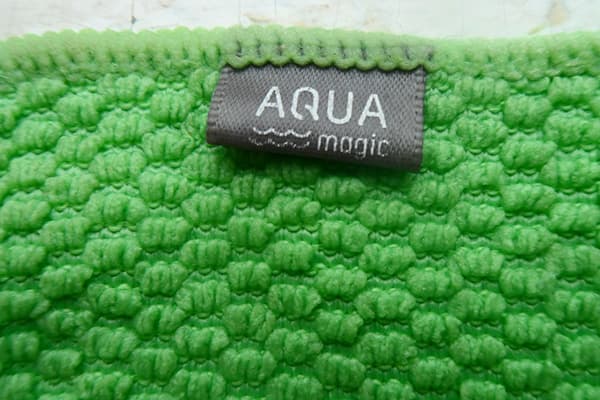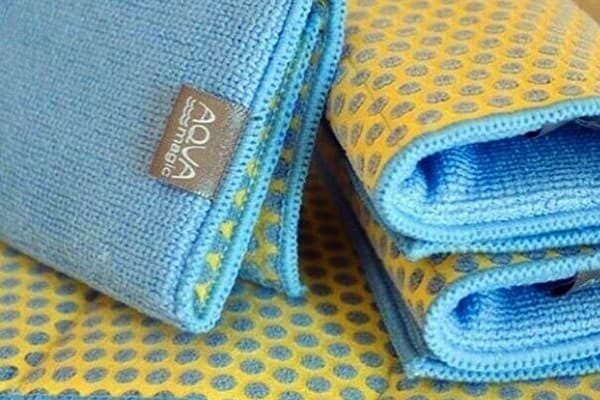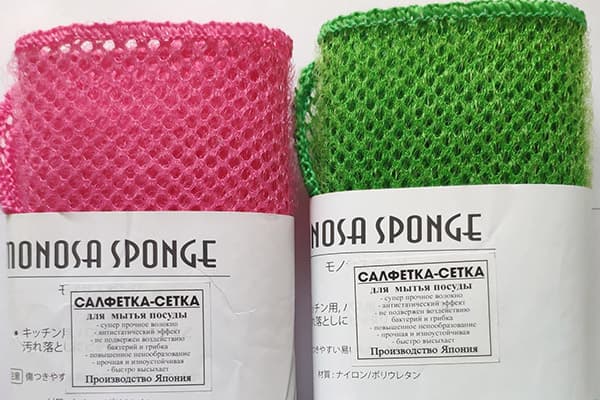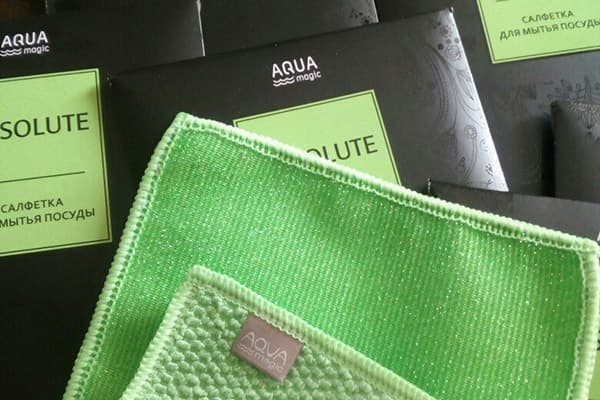Now you can wash dishes without detergents
Progress has given us many miracles, including a dishcloth without detergents. This invention is an excellent alternative to synthetic surfactants, which disrupt the ecological balance and can provoke allergies and skin diseases in humans.
Eco-friendly napkins are usually made from cotton and with the addition of bamboo fiber. Manufacturers promise the durability of such products and the ability to quickly tidy up not only the dishes, but also the sink. This cloth replaces a set of sponges, which quickly become unusable and lose their appearance after a week of use.

Compound
Bamboo napkins are fabrics made of non-woven material, for the production of which natural raw materials are used. Their main feature is their special structure: these are porous-tubular rags.
The size, price and color of napkins depend solely on the imagination and desires of the manufacturer. The buyer can choose according to his taste either options from China, which are attractive at a low price, or European and Russian analogues, which are of higher quality and durability.
Despite the name, bamboo placemats are not made from bamboo fibers. First, the wood is converted into cellulose, and then threads are made from this raw material. To prevent them from being very hard, they are treated with sodium hydroxide. In some cases, the manufacturer dilutes the bamboo with cotton by 50%.
Scope of use
Bamboo napkins are positioned as rags that are convenient for washing dishes, but in fact their scope of application is much wider. They are used:
- for washing windows and mirrors;
- to wipe away dust;
- for daily cleaning of surfaces (for example, a kitchen table);
- for the care of household appliances, kitchen stoves;
- for washing the sink.
When washing dishes, these napkins are excellent at removing grease. Buyers share reviews and say that they manage to wash almost any surface without using chemicals.
True, according to the same users, after such an operation, hands may end up in grease, which transfers through the rag to the skin, so they have to be washed with soap.
Advantages
Bamboo rags delight housewives with the following advantages:
- They do not leave scratches on any surfaces (but at the same time they do not polish them, which must be kept in mind).
- They do not absorb dirt - it can be easily rinsed with running water.
- When using them, you do not need to spend money on buying dishwashing detergents.
- They are safe for the environment.
- They have bactericidal properties.
- They are inexpensive and with average use can last almost a year.
- Since it is a non-woven material, it does not leave any lint on the surface.
- When used, no thick foam is formed, which then must be washed off from the dishes and from the sink.
Cons and myths
Of course, these miracle napkins also have their downsides:
- They will not be able to wash off dried grease or get rid of burnt food.
- They are not as easy to use as regular sponges or brushes, and they do not have abrasive properties.
- To wash one plate you will have to spend more water than when washing with special products.
Manufacturers usually promise that one bamboo napkin can withstand about 500 washes, while experience shows no more than 50. They tear quickly. But if you follow the instructions and wash one rag once a week, then it should be enough for about a year.
Another attractive part of the advertising of these products is that the wipes do not absorb odors. They actually absorb, they just do it more slowly than microfiber cloths or foam sponges.
But the absence of streaks and the ability to wipe surfaces dry are a controversial issue, since these properties depend on the manufacturer, who decides what the napkin will be made of.
Also, the promise that the rag will not fade or change shape does not come true. In fact, bamboo napkins gradually “shrink” after washing, and if the washing regime is not followed, stains remain on them, which then cannot be removed.
So, miracle bamboo rags have both pros and cons. Those for whom health and environmental safety come first should add such a thing to their arsenal of household tools. For those for whom washing speed and economical water consumption are more important, this option is not suitable.



What kind of platform is it if a video of one company’s products is used to advertise products, but in fact there is a description of a completely different one. GreenWay products were not lying next to bamboo. Produced in Japan. Greenway napkins are truly durable, unlike bamboo ones, and have the ability to wipe off old grease and other contaminants. So you should check the materials before publishing them
These rags have been known about for 20 years. So your news is outdated.
The fat is washed off and does not have a disinfectant effect like soap and detergents.
everything is written correctly! Removes grease from dishes without detergent, washes sinks and plastic dishes with a regular napkin with detergent.